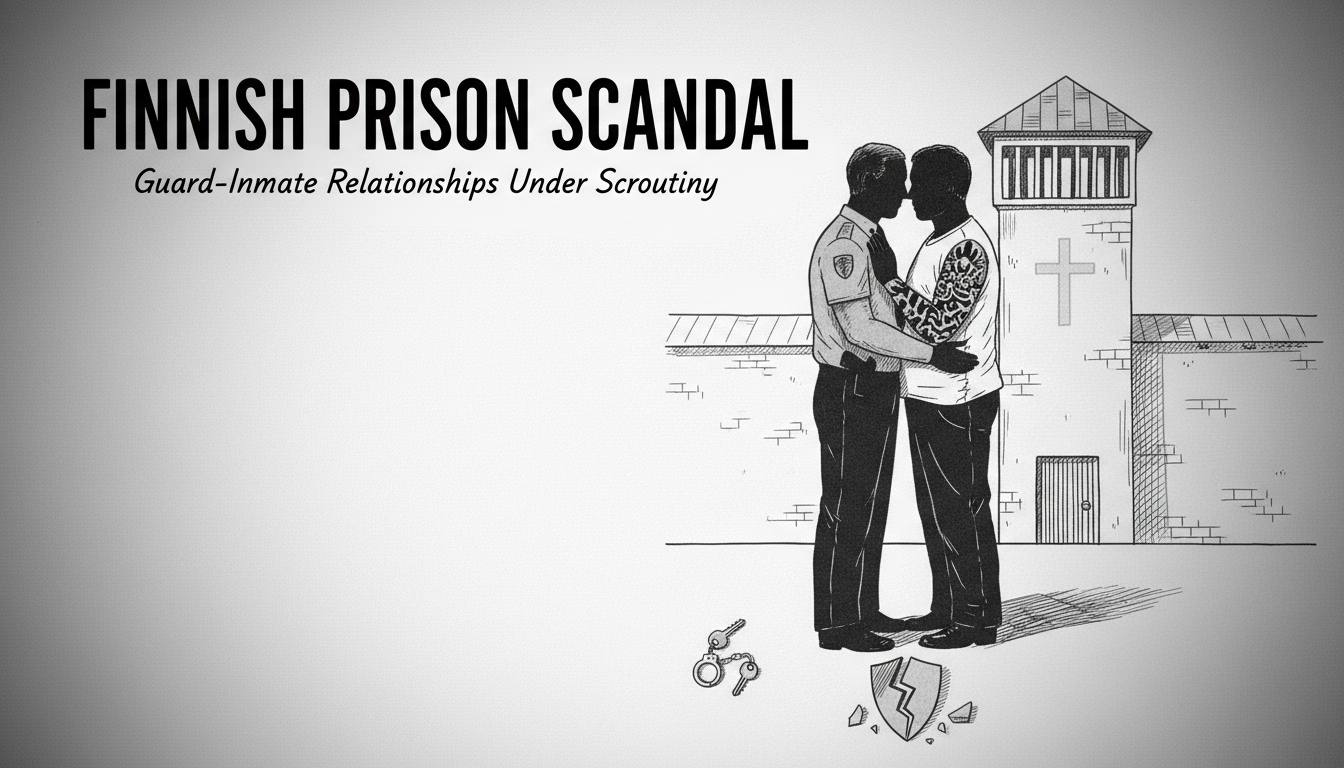Finland's Criminal Sanctions Agency has fired approximately a dozen employees in recent months following troubling revelations about inappropriate relationships between prison guards and inmates. An internal investigation uncovered what sources describe as a growing epidemic within the country's correctional facilities.
The dismissals occurred after authorities discovered what they term 'overly familiar' relationships developing between prison staff and certain inmates. The situation appears most concerning with high-level gang criminals, where boundaries have reportedly become dangerously blurred.
A source within the prison system described the problem as widespread, using the term 'rotten guards' to characterize staff members who have crossed professional boundaries. These relationships represent a fundamental breach of security protocols and ethical standards within the correctional system.
Finland's prison system has historically been regarded as one of Europe's most progressive, focusing heavily on rehabilitation rather than pure punishment. This makes the current revelations particularly damaging to the country's reputation for humane incarceration practices.
The Nordic country operates under a principle of normalization in its prisons, aiming to create conditions similar to life outside prison walls. While this approach has shown success in reducing recidivism rates, it also creates environments where professional boundaries can become challenging to maintain.
What makes these allegations especially troubling is their concentration among guards working with organized crime figures. Security experts warn that such relationships can compromise institutional safety and potentially enable criminal activities to continue from within prison walls.
The Finnish prison system employs approximately 2,800 staff members across 26 institutions. The dozen recent dismissals represent a small but significant portion of the workforce, suggesting this may not be an isolated problem.
Prison authorities face the difficult task of maintaining security while also fostering rehabilitation. The current situation highlights the delicate balance required in correctional settings and raises questions about oversight mechanisms within Finnish prisons.
International observers will be watching closely how Finland addresses these challenges. The country's approach to prison reform has often served as a model for other nations seeking to reduce recidivism through humane treatment.
These developments come at a time when many European prison systems are facing staffing shortages and increased pressure from growing inmate populations. The situation in Finland serves as a cautionary tale about maintaining professional standards even under difficult circumstances.
Authorities have not disclosed specific details about the nature of the inappropriate relationships or which facilities were most affected. They have emphasized their commitment to addressing the issue thoroughly and implementing stronger safeguards.
The Criminal Sanctions Agency now faces the dual challenge of rebuilding public trust while ensuring similar breaches do not occur in the future. This will likely involve revised training protocols and enhanced monitoring of staff-inmate interactions.
For a system built on principles of trust and rehabilitation, these allegations represent a significant setback. How Finland responds will test the resilience of its correctional philosophy and its ability to maintain ethical standards under pressure.

